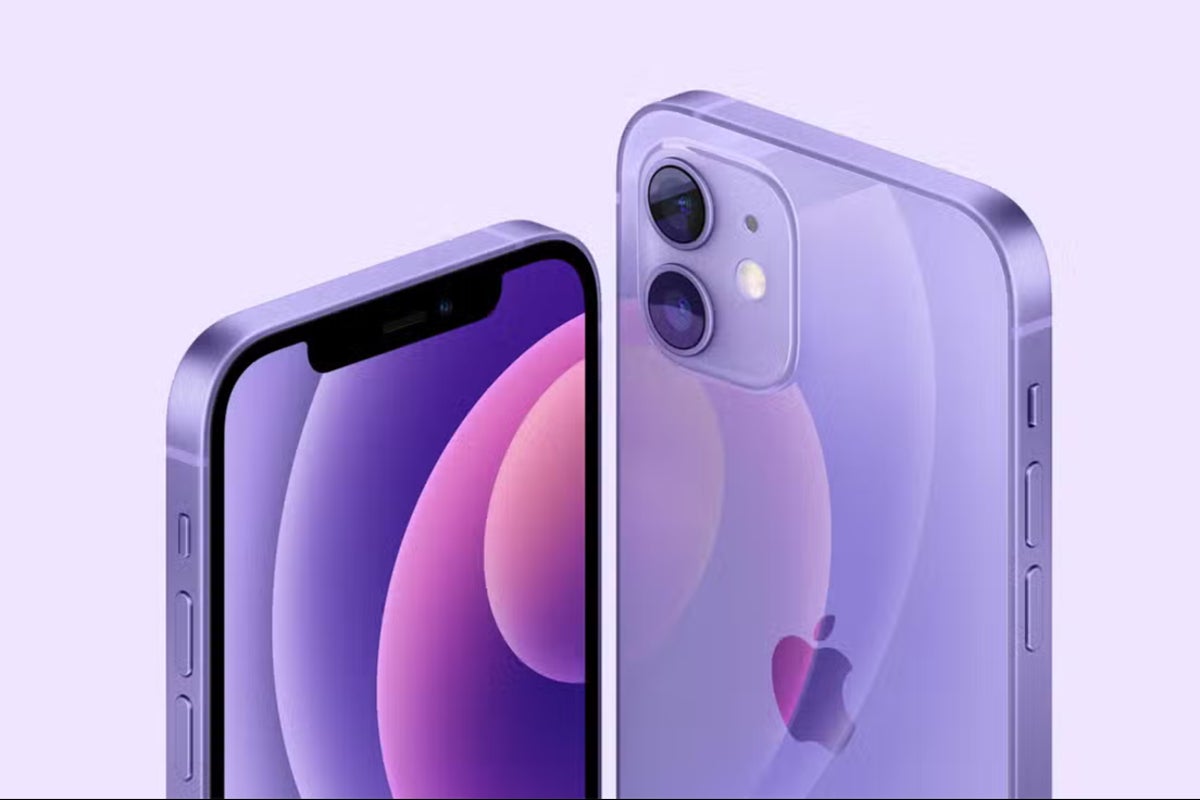Apple to release iPhone 12 update to address radiation concerns

pple said it will issue a software update for the iPhone 12 after the device was banned in France due to its radiation levels.
On Friday, the tech company said the update is related to a specific protocol used by French regulators, and not a safety concern.
France halted sales of the iPhone 12 earlier this week after deeming that it had above-threshold radiation levels.
Apple is issuing an update for the device as it looks to de-escalate an impending battle with European regulators. Belgium began testing the iPhone 12’s radiation levels following France’s ban, while Germany suggested the rest of Europe could follow suit.
“We will issue a software update for users in France to accommodate the protocol used by French regulators,” an Apple spokesperson said in a statement on Friday. “We look forward to iPhone 12 continuing to be available in France.”
A French minister told Reuters that it is preparing to test the update, adding that it should bring the model into compliance with European standards and allow France to lift its temporary suspension.
Why did France ban the iPhone 12?
The decision to ban the iPhone 12 in France was taken after a routine test of 141 mobile phones, the Agence Nationale des Fréquences authority (ANFR) said on Tuesday.
The device, which Apple has been selling since 2020, was found to have above-threshold levels of radiation when it was in contact with the body.
Specifically, the iPhone 12’s specific absorption rate (SAR) was 5.74W/kg, putting it above the maximum limit of 4W/kg, the ANFR said.
The phone did not exceed the maximum radiation levels when kept 5mm away from the body, the watchdog noted.
SAR measures the amount of radio frequency power that is absorbed by the human head or body when using a mobile phone. It is calculated in watts per kilogram of body weight.
At the time, Apple said it had provided ANFR representatives with multiple Apple and independent third-party lab results proving its compliance, and will continue to engage with the regulator to show it is compliant.
France’s junior minister for the digital economy told newspaper Le Parisien that Apple had two weeks to respond. He said that a software update for the iPhone 12 would be sufficient to fix the issue.
The French watchdog announced its ban on the same day that Apple revealed its new iPhone 15 range at an event in California.
Apple has discontinued the iPhone 12, along with several other models, to prevent disruption of new smartphone sales. The handsets are still available to purchase through third-party retailers.
Are smartphones safe to use?
There have been concerns and conspiracy theories suggesting that the radio waves smartphones produce might be unsafe.
But most current research suggests that it’s unlikely that mobile phones, or 4G and 5G base stations, increase the risk of health problems such as cancer.
Cell phones emit low levels of non-ionising radiation when in use to find a signal, which is also referred to as radio frequency energy. These radio waves are absorbed into your body tissue as energy, adding to the energy produced by your body’s metabolism.
However, the radiation produced by mobile phones or mobile phone masts is very weak. It does not have enough energy to damage DNA, so is highly unlikely to be able to cause cancer, according to charity Cancer Research UK.
The only known effect of radio waves on the human body is a very small rise in temperature of up to 0.2C. This is comparable to natural increases in temperature, such as during exercise, and does not pose a known risk to health, according to the NHS.
Large reviews of published research examining the effects of mobile phone exposure on users have found that they do not cause health complications. However, further research is still needed to check that there are no health impacts from long-term exposures (using a mobile phone for more than 20 years).
Is SAR accurate?
Smartphone maker Sony has said that SAR values exaggerate real-life radiation exposure levels. This is because testing for these limits takes place in laboratory conditions, where phones are transmitting at their highest certified power levels.
Whereas during everyday use, mobile phones transmit at much lower energy levels in order to maximise battery life, Sony states on its website.
How to reduce your exposure to smartphone radiation
If you are still worried about exposing yourself to smartphone radio waves, you can take the following steps recommended by the NHS:
- Only make short calls on your mobile phone and avoid using it more than necessary.
- Children should only use mobile phones for essential purposes and keep all calls short.
- Use a hands-free kit to keep your phone as far away from your head as possible, and keep your mobile phone away from your body when it’s in standby mode.
- Only use your phone when the reception is strong – this is often indicated by bars of energy on your phone screen. Weak reception causes the phone to use more energy to communicate with the base station.
- Consider the SAR of a mobile phone before you buy it. Mobile phone retailers have a responsibility to make this information available to customers before they buy.
How to check your phone’s radiation levels
Most phone makers list their phones’ radiation levels in the legal section of a device’s settings menu. Look for terms such as RF Exposure or SAR Rating when searching for this info. Samsung, meanwhile, provides the SAR levels for specific phone models on its website.
You can find the radiation value listings for major phone brands by following the links below:
This article has been archived for your research. The original version from Evening Standard can be found here.


